When I landed in Berlin on a snowy morning in January, there was a new voicemail from my mom on my phone. We didn’t get the chance to talk before my flight, but I travel often and didn’t think much of the missed call. I had just embarked on a trip through Germany and Greece with a small group of filmmakers to chronicle the stories of women and girl refugees for She Is Syria, a multimedia documentary project.
I didn’t know what to expect tackling such a devastating and urgent issue, or whether anyone would even be willing to talk to us. But over the course of the next two weeks, I was awestruck by the willingness of the Afghan, Kurdish, Iraqi, Palestinian, Iranian, and Syrian women I met to share their experiences.
The stories they had to tell were often disturbing and difficult to take in. Like 28-year-old Sahar from Syria who has no idea whether her husband is dead or alive; he was arrested by Assad’s secret police three years ago. Unfazed by her situation and determined to survive, she made the journey to Germany alone with her 3-year-old daughter — traveling by foot, bus, and train, braving freezing temperatures, and paying smugglers for safe passage across borders.
Or Faida, a 53-year-old Syrian and mother of two twentysomething boys, who told us about setback after setback on her journey to Europe: she was arrested by police twice, was ripped off, got stuck in border towns when her cash ran out, and then the kicker — she and her son were dumped by smugglers in Denmark instead of Germany.
Sara, 21, traveled alone with her baby daughter to reunite with her husband in Berlin. When she arrived in Germany, she faced yet another hurdle — the government agency wouldn’t allow her to live in the same refugee camp as her husband. In protest, she slept outside the Neubau camp in the middle of winter for an entire week until they finally acquiesced.
These women’s courage and sense of purpose took my breath away. There was no question that they would go to the ends of the earth in order to keep their families safe. As mothers, they were absolutely fierce.
When I finally had a quiet moment to listen to my mom’s message, a swell of emotion caught in my throat. She said she was excited and scared for our trip all at the same time. Then she paused, “Just be careful…because we couldn’t live without you.”
Rarely do we see women and the crucial roles they play in times of conflict — as heroes, not victims. My mom expressed in words the conviction I witnessed in the refugee women I met. The following is an attempt to give them their due as mothers, daughters, sisters, wives, and the glue holding it all together.
Thanks, Mom.
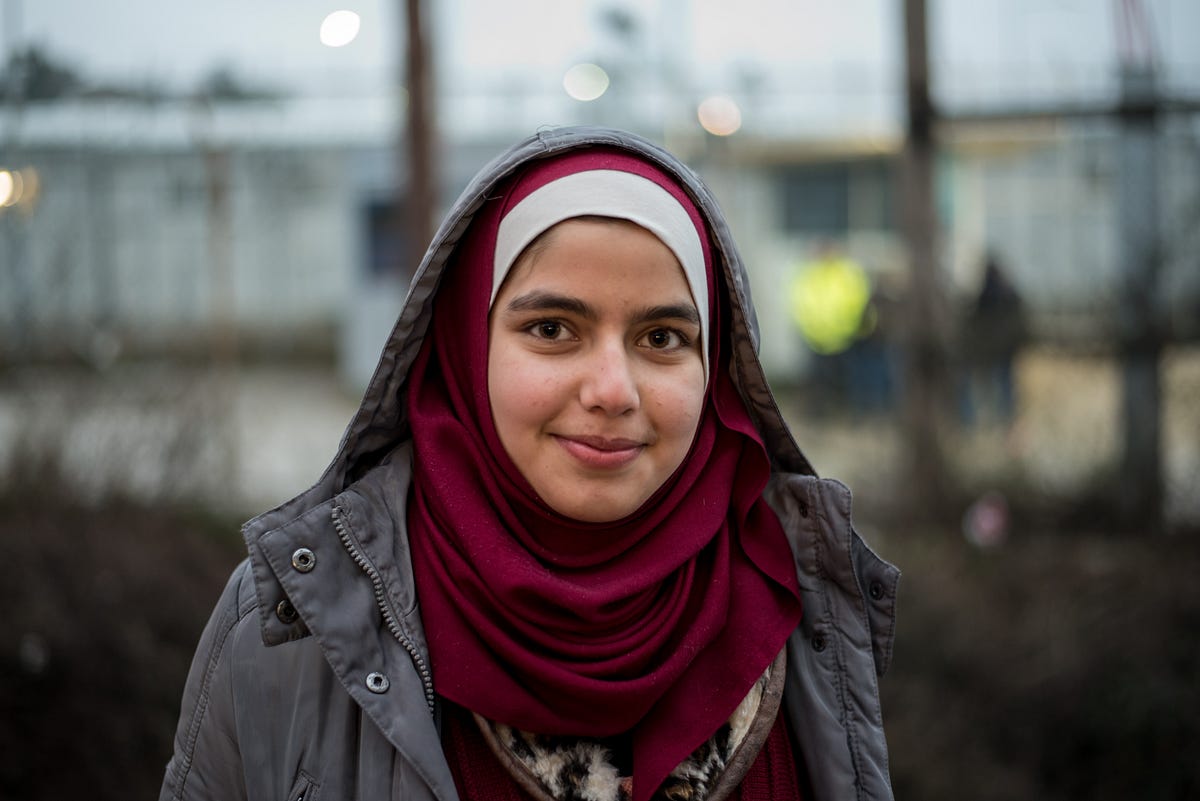
I met Abir, 14, and her mother, Aveen, outside the official Moria camp on Lesvos, Greece (the barbed-wire fences you see in the background behind her). Abir was sweet and soft-spoken and never far from her mother’s side. They had just made the boat trip to the island that morning, along with her brother, leaving at midnight and arriving at 6 a.m. Abir’s father unfortunately died from heart complications several years ago.
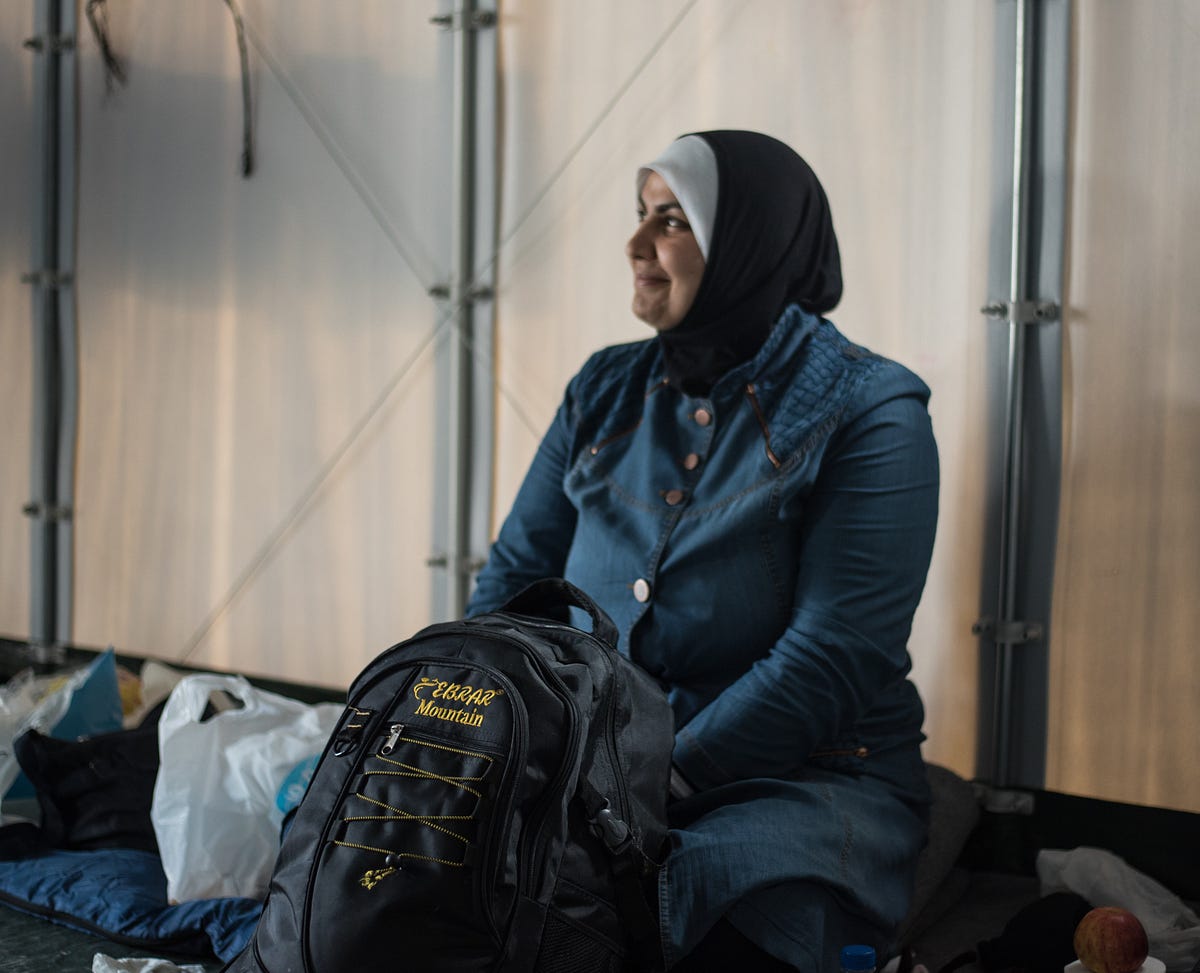
Aveen, 37, is the kind of matriarch you trust implicitly. Friendly and open, she invited me to sit down next to the wood-burning stove their group was huddled around. Remembering her home, she says, “I was happy in my house, in my country. During the war, my house was bombed and completely demolished. It was not a home any more…What I want for Syria: I want the war to stop, to go back to my country. I hope that God will solve this problem.” She and her children made it to Germany and are now living at a refugee camp in Hamburg.
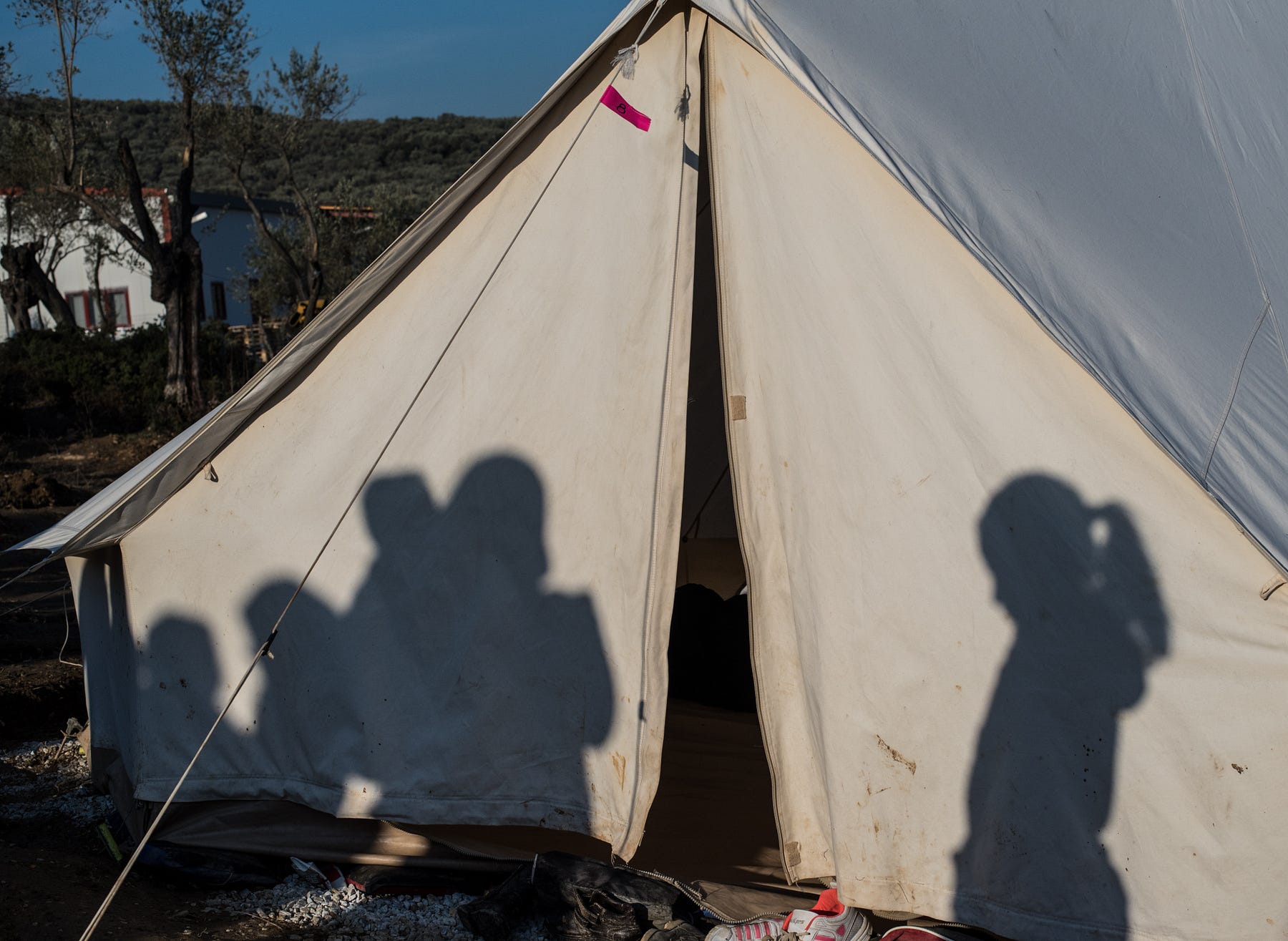
Sabah, 35, is a mother of four and elementary school teacher fleeing Damascus, Syria to join her husband in Germany. “This journey was not easy at all. As a mom, it’s very hard. We wanted to turn back for the kids. It was very difficult for them. We climbed the mountain…the smuggler told us an hour and you arrive in Turkey. The trip took 7 hours. We were running with our children.” Sabah preferred not to have her face photographed but poses here in shadow with several other mothers and their children by their tent at Moria camp, Lesvos.
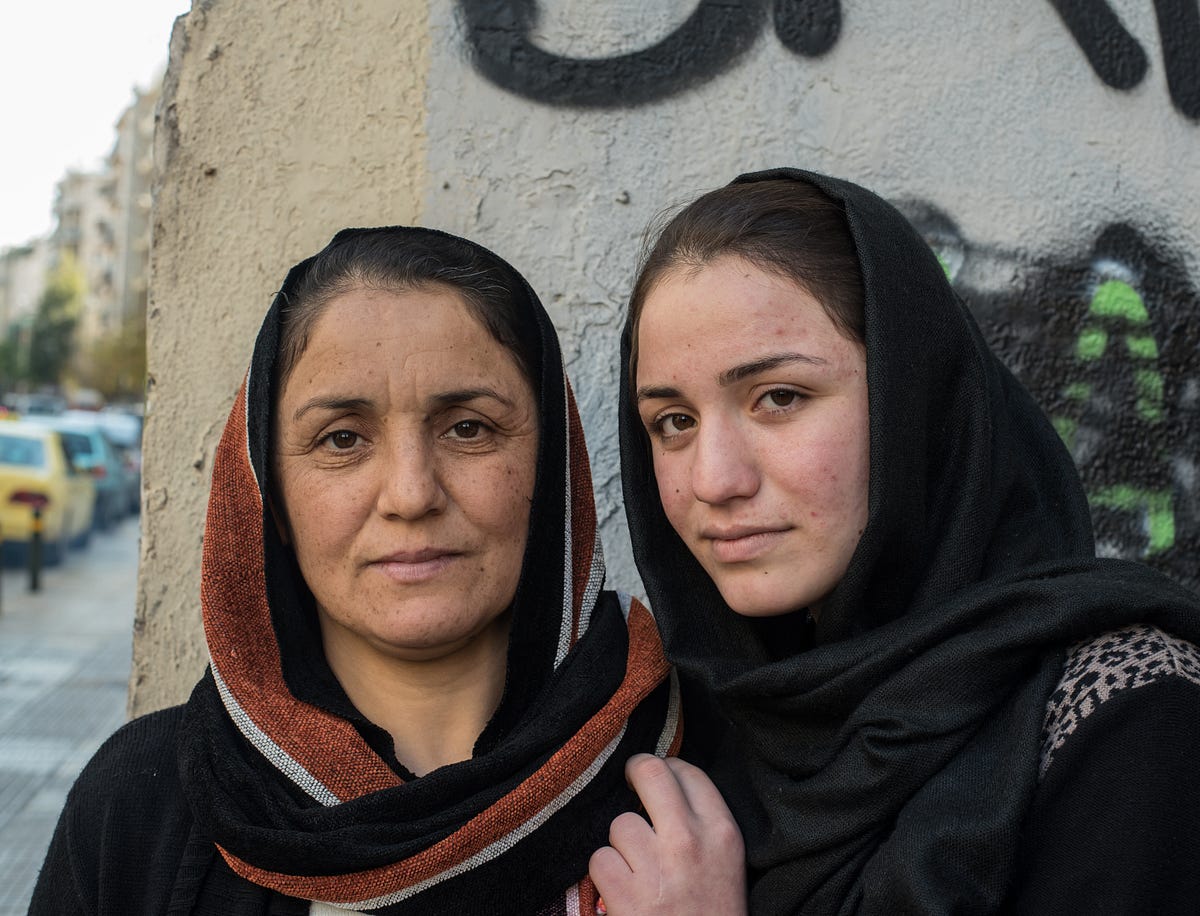
Asima Mohamed, 43, and her 17-year-old daughter are from Mosul, Iraq. When ISIS destroyed their home in 2009, their family of 10 moved to Kurdistan. But in December 2014, their new home was destroyed by ISIS once again. When this picture was taken, they were in Athens, Greece, waiting for the Netherlands to process their asylum application.
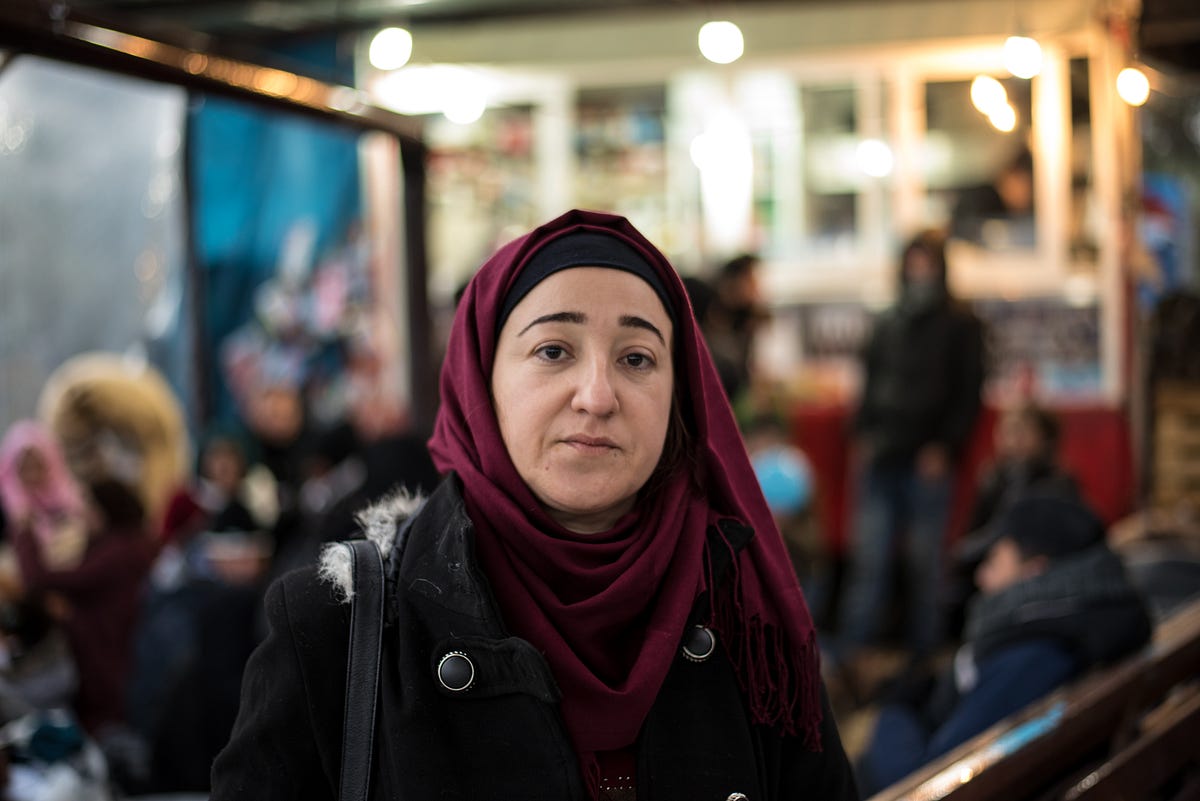
“I miss everything…my friends, my house. I think it was a good life, it was. But now, no,” says Nadia, a 37-year-old from Syria. Divorced and without children, she was traveling with her mother and her younger brother who would have been conscripted into the Syrian army had he stayed behind. I asked her if she could have anything, what would it be? “I want not to die here. I want to die in my country. Not here, not in Germany. You know, if now [the war] finished, I will go back. Really, even if I don’t have anything.”
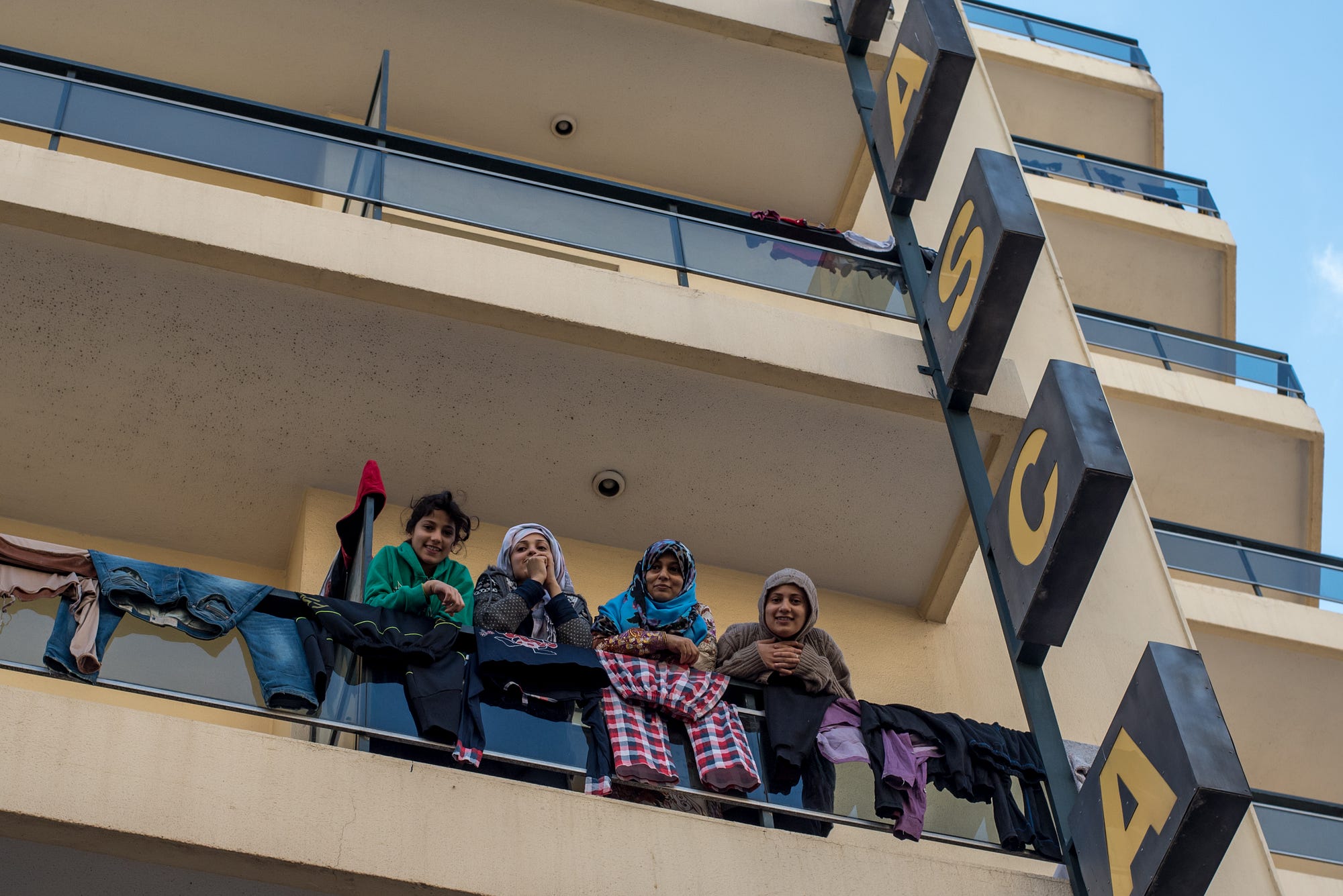
A group of Yemeni women look down from their room at Hotel Balasca in Athens, where their clothes hang dry from the balcony. The UN has placed them and their families at the hotel until their asylum assignments in the EU come through.
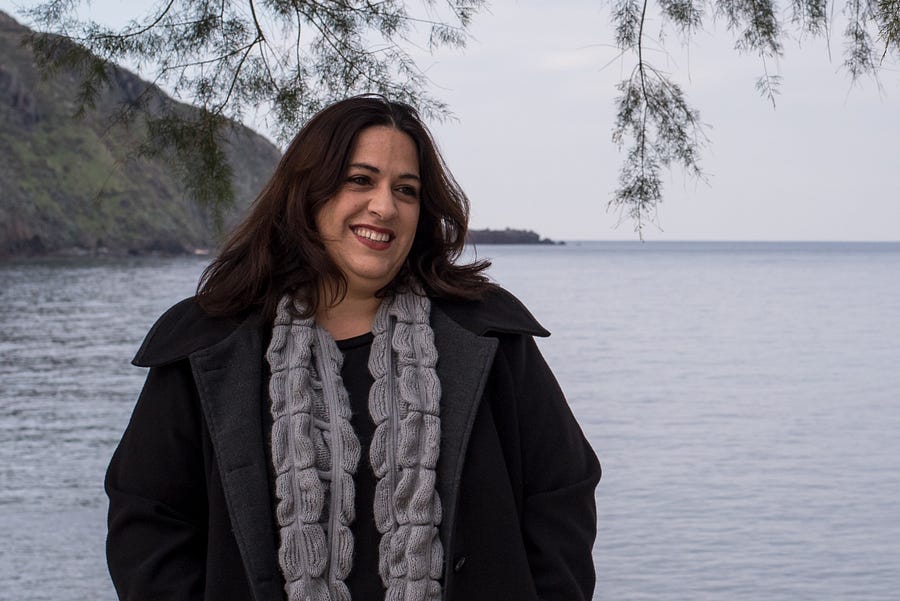
“I went home to get clothes from my own children’s closets…before I knew it, I turned around and I saw four little children wearing my own children’s clothes. It touches home when you see this. You realize this easily could have been you.”
Aphrodite Vati Mariola is a mother, teacher, and the owner of Hotel Aphrodite, a family-run business in Molivos, Lesvos. She is an exemplar of Greek hospitality. When the first boat of refugees landed on her beach in April 2015, she mobilized her staff to help them safely disembark. Many hotel guests have found it difficult to deal with the situation. Tourism is down 70% for the year so far.
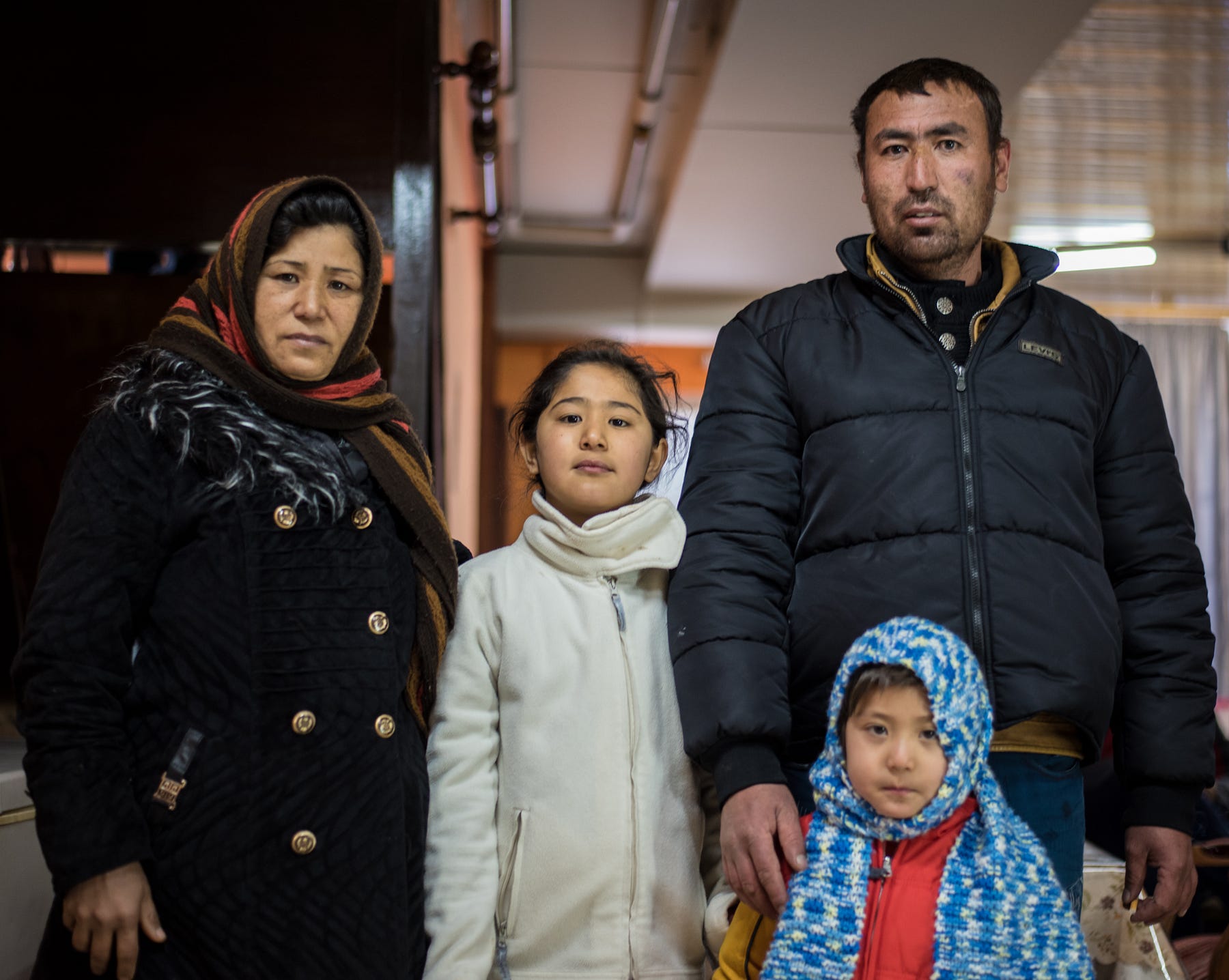
I crossed paths with the Hosseinis from Afghanistan in the back room of an Indian restaurant near Athen’s Victoria Square. They were waiting there, along with 5 or 6 other families, to board a train later that evening. Nilufa, 8, was sweet and sat quietly reading a paperback book imprinted with the title “How to Make a Better Life.” Assal, 2, was clearly the mischievous little sister who at one point had the whole family cracking up over her antics. Later that night I laid awake wondering if they would make it safely to Macedonia, where the border had recently been closed. Thankfully, two weeks later we learned that they had arrived in Bavaria, Germany.
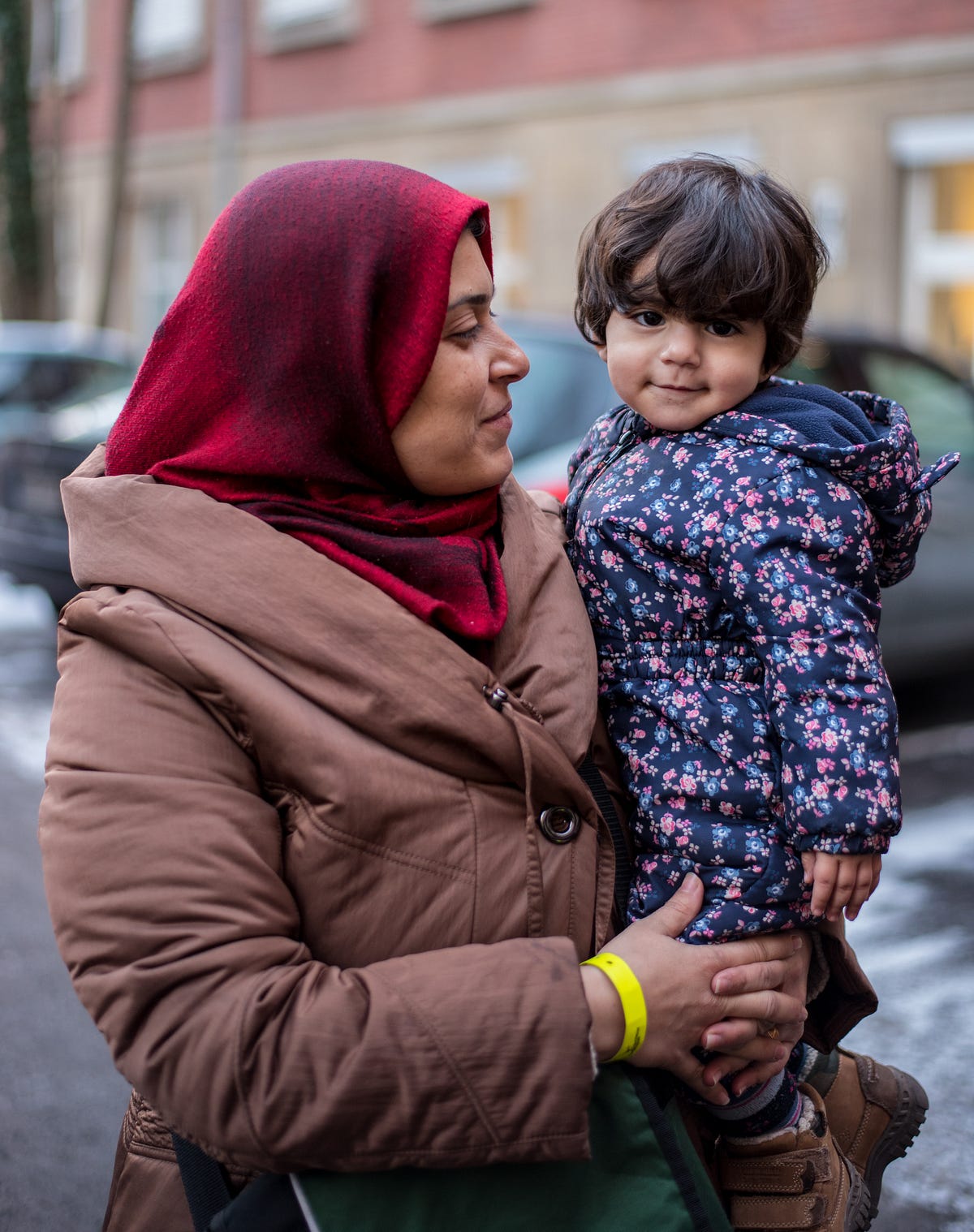
Zahra, a refugee from Iraq, embraces her 9-month-old girl. She came to Germany alone with her two children, while pregnant with her third child.
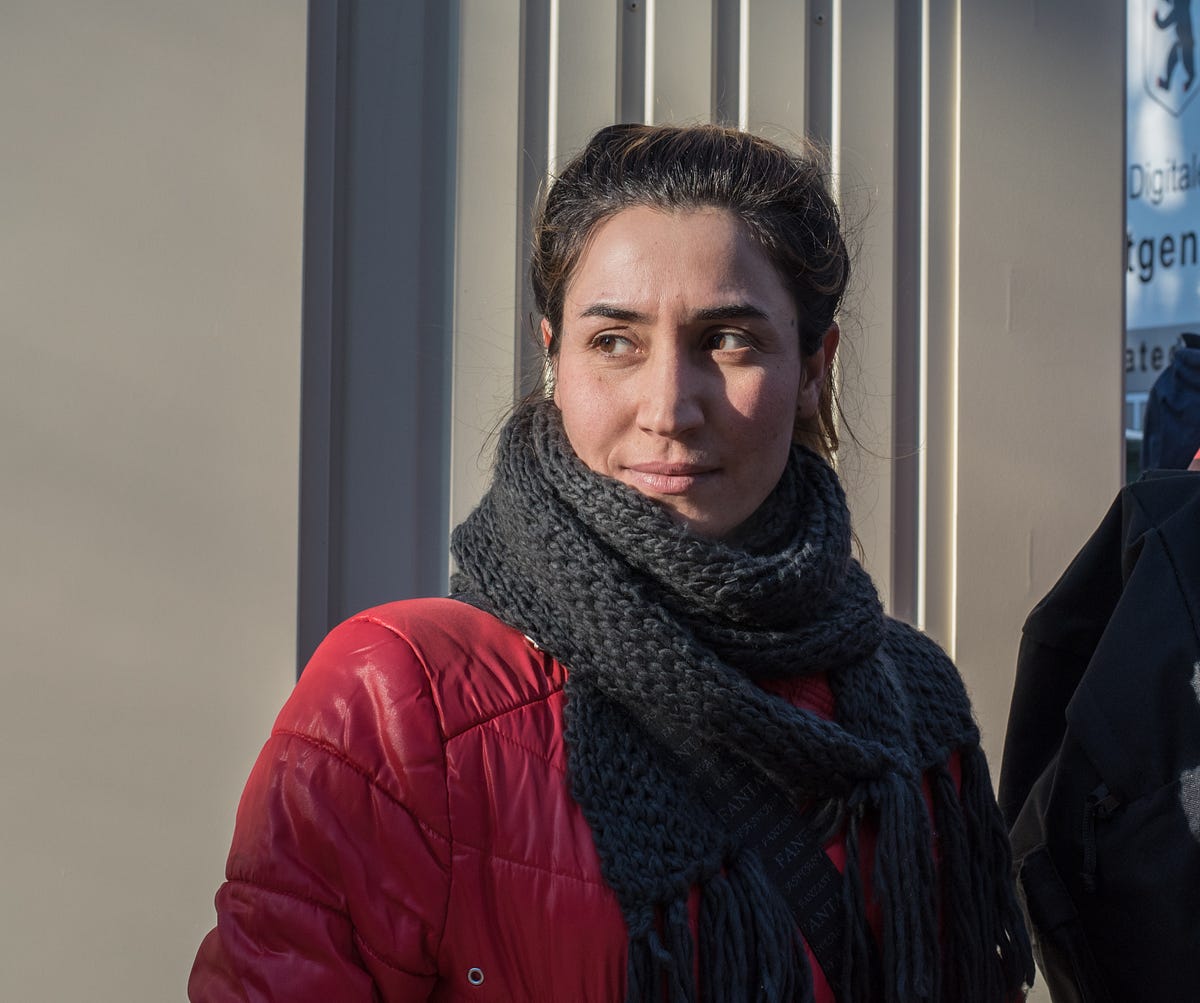
When I met Azula, an Iraqi Kurd, she had been in Berlin for just 20 days. She had the hopeful sheen of a new arrival and was upbeat about discovering the life ahead of her. Here, she dreams of becoming a hair stylist; in Iraq she wasn’t allowed to work as a woman.
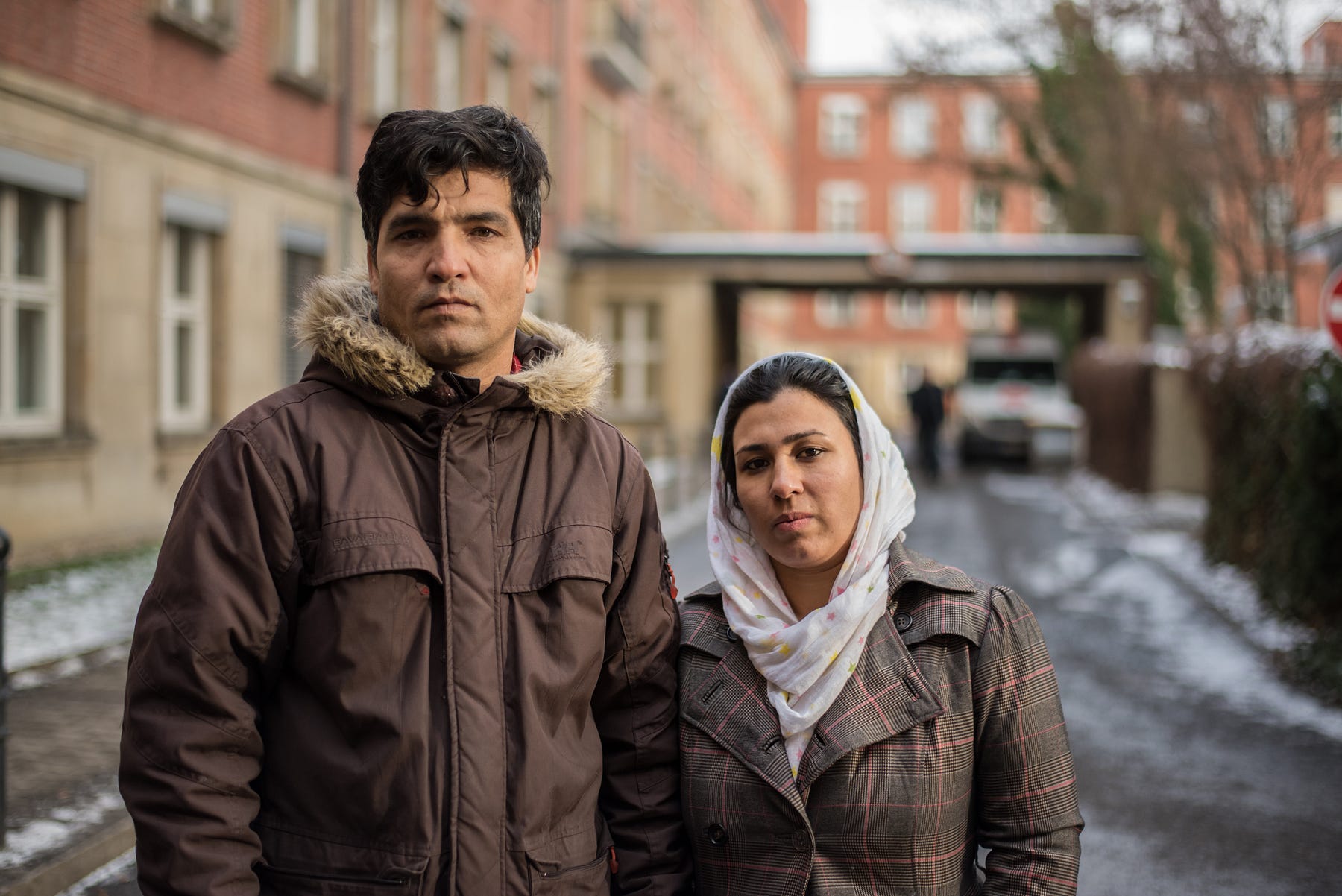
Hamida and her husband Mohammadi are refugees from Afghanistan who arrived in Berlin several months ago. They have two young children, an 8-year-old boy and a 3-year-old girl who is very sick. Complications with their daughter’s health drew out what is normally a 12-day trip into a 40-day journey through Iran, Turkey, Greece, Macedonia, Slovenia, Croatia, and Austria. They are currently living at Haus M, the medical center at LAGeSo, where the doctors are still trying to diagnose their daughter’s illness.
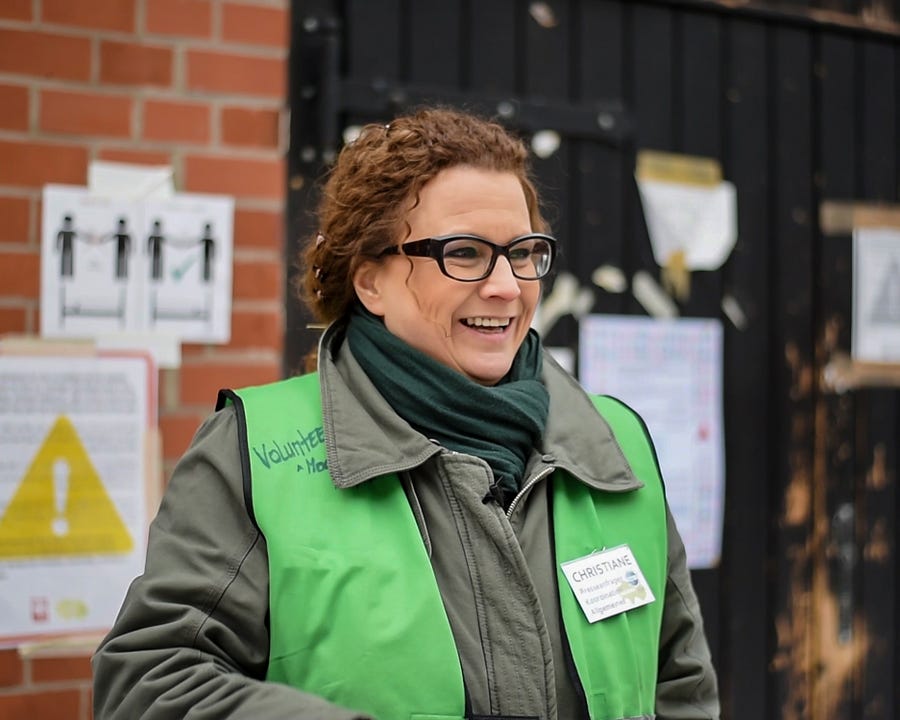
“What if you have a family and your sister is the 200,001st person who is not allowed to come inside? You don’t let her come inside,you let her die?”
This is Christiane Beckmann’s fervent plea for why Germany shouldn’t tighten up its asylum laws. She is the coordinator at Moabit Hilft, a local citizens group that provides clothing, toiletries, diapers, and a warm cup of chai to the refugees at Haus D in LAGeSo, Berlin’s main refugee center. She considers the volunteers at Haus D, many of whom are refugees themselves, as an extended family. She smiled with pride when she mentioned having gained a new son — Ayham, a young man from Syria who now lives with her family.
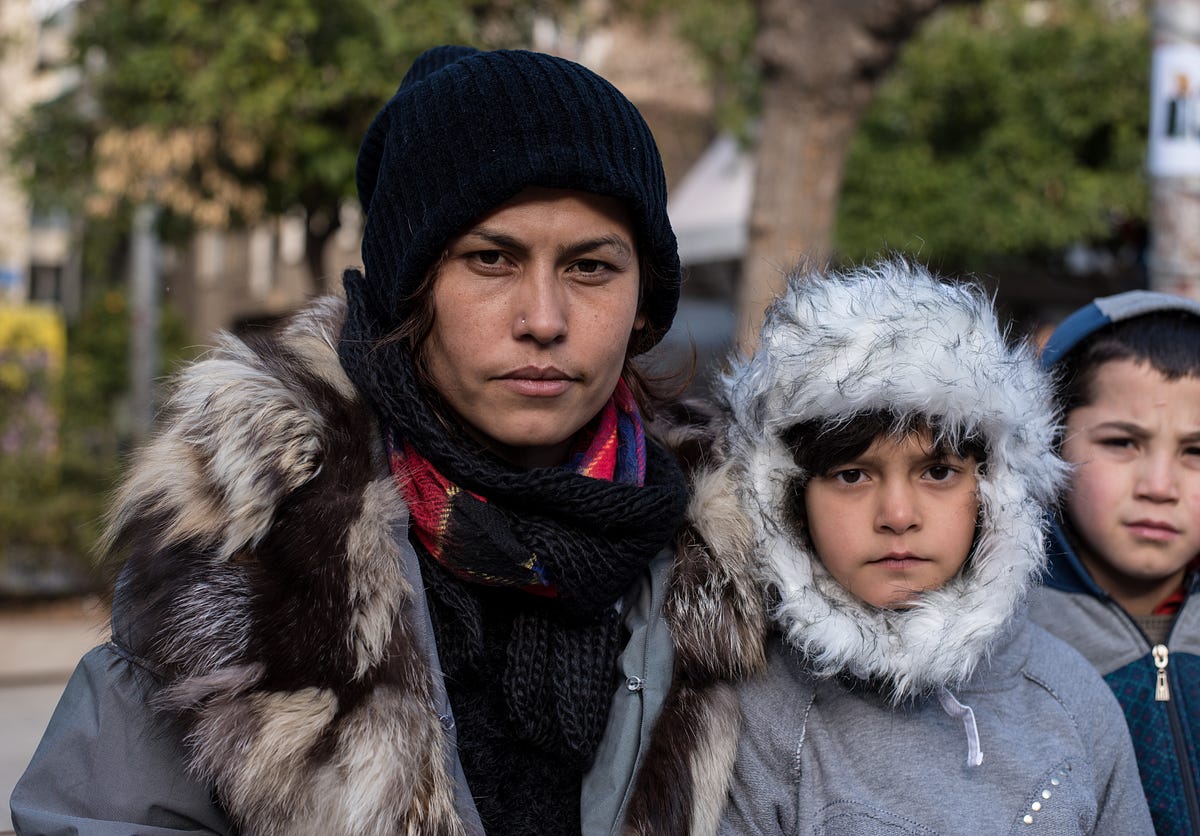
Victoria Square, where I met this Afghani woman, is one of the main areas in Athens where refugees and migrants pass through on their way to other EU countries. She and her siblings were enjoying the winter sunshine in the park, horsing around and killing time until their 6 o’clock train to Macedonia.

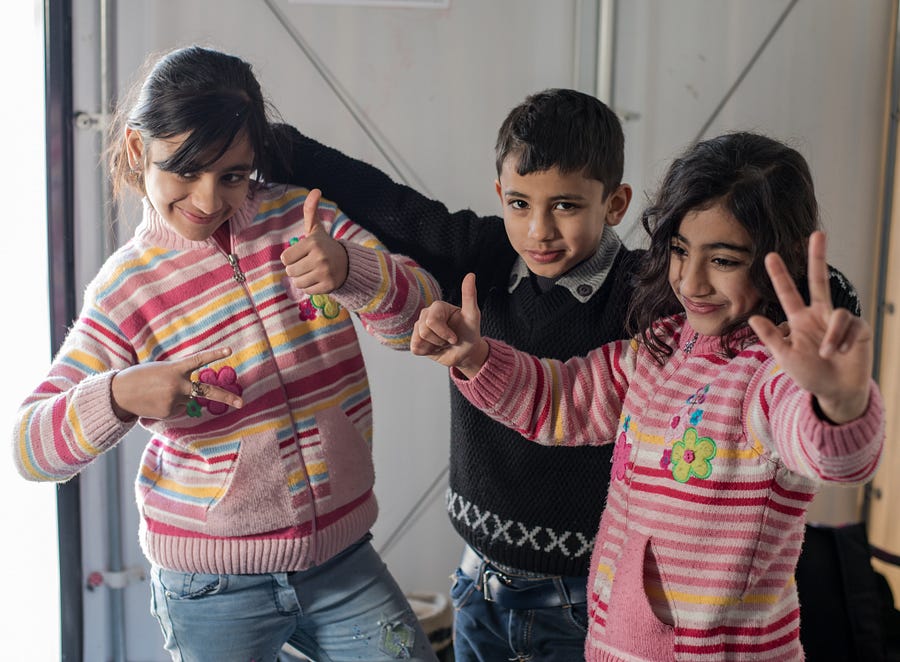
(at left) Feriel, 37, is a mother of six from Syria. Here she stands with her sons Omar and Abdullah. (at right) Over the course of two days, I got to know her daughters Bayan, 9, and Reem, 11. The pair was always dressed in matching pink outfits and could have easily been mistaken for twins. The girls, along with Abdullah, showed off their choreographed dance routine to Arabic techno inside their tent at Kara Tepe camp, Lesvos.
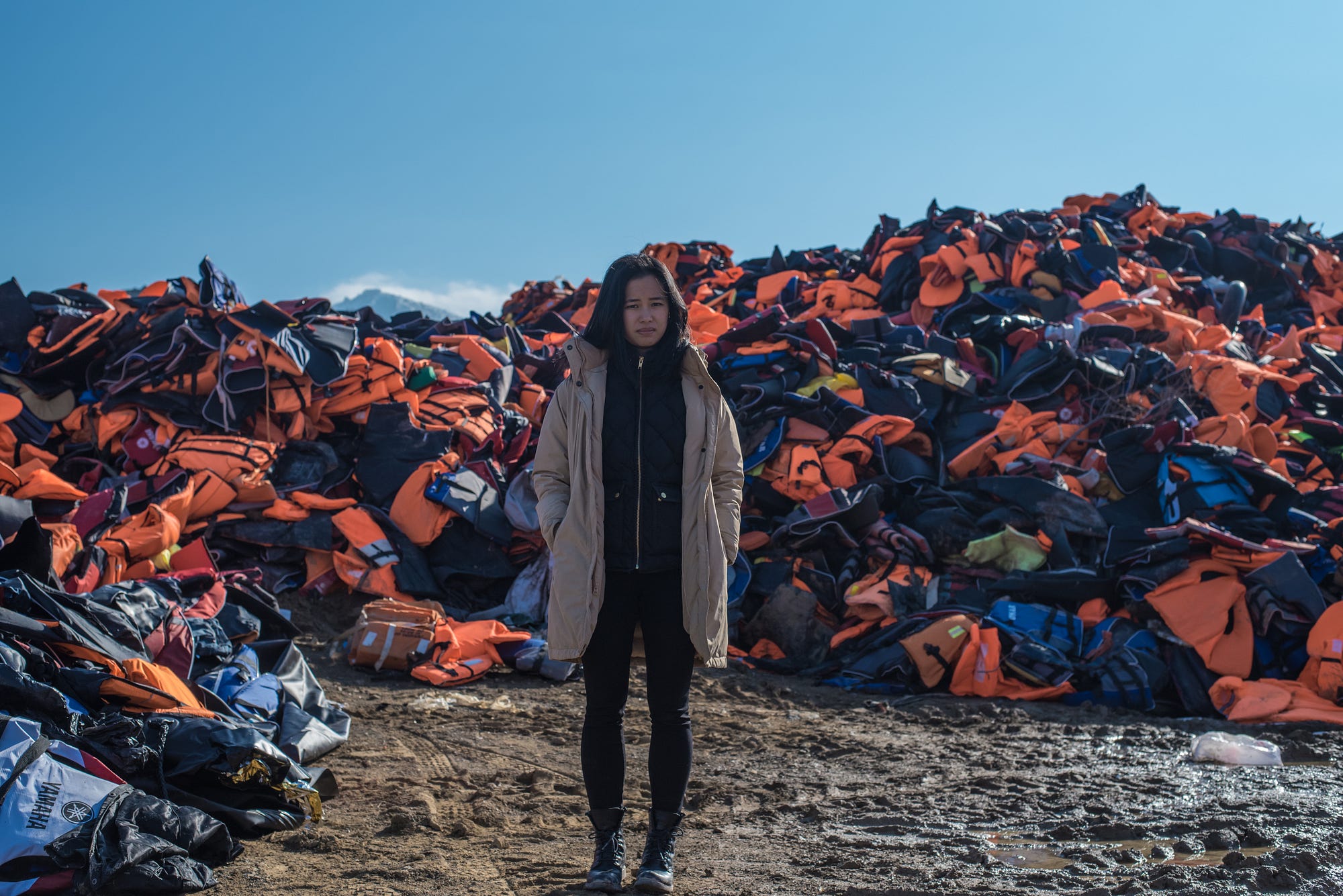
Shelley Cheung, filmmaker and director of She Is Syria, stands in front of the growing life jacket dump on Lesvos. Her father, who swam to Hong Kong in order to flee Communist China, came to the United States as a refugee in 1977. “I was in shock when I saw the mountains of life jackets,” she says. “I think it was kind of symbolic of our trip…you just can’t believe what you’re hearing until you see and experience it.”